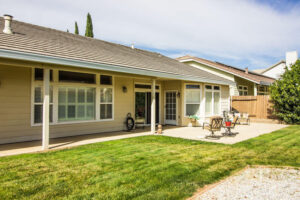How to Winterize Pipes: Protect Your Home From Freezing This Winter

Frozen pipes
As winter approaches, one of the most critical tasks for homeowners is ensuring that their plumbing system is prepared for freezing temperatures. Frozen pipes may burst, resulting in expensive water damage and repair bills. By taking proactive steps to winterize your pipes, you can protect your home and avoid the inconvenience of plumbing emergencies. For complex or large-scale tasks, seeking guidance from residential plumbing services Johnstown can ensure everything is done correctly.
Why Winterizing Pipes Is Important
When temperatures drop, the water inside your pipes can freeze, expanding and putting pressure on the pipe walls. This pressure can cause pipes to crack or burst, leading to significant damage and water waste. Winterizing your plumbing system helps prevent these issues, saving you time, money, and stress during the colder months.
Steps to Winterize Your Pipes
1. Inspect and Repair Leaks
Inspect your plumbing system for any leaks before the winter season begins. Check faucets, pipes, and connections for any signs of dripping or moisture.Even minor leaks can become more severe in freezing temperatures, so address any problems without delay. If you’re not confident in managing repairs on your own, professional residential plumbing services can assist in identifying and resolving potential issues.
2. Insulate Exposed Pipes
Pipes in unheated spaces like basements, attics, garages, and crawl spaces are especially prone to freezing. Use foam insulation or heat tape to safeguard exposed pipes. Proper insulation not only prevents freezing but also helps retain heat, making your plumbing system more efficient.
3. Seal Cracks and Openings
Cold air can enter your home through gaps or cracks around windows, doors, and walls, heightening the risk of pipes freezing. Seal these openings with caulk or weatherstripping to keep your home warm and protect your plumbing. Pay special attention to areas near pipes to ensure they’re shielded from drafts.
4. Disconnect and Drain Outdoor Hoses
Leaving garden hoses connected to outdoor faucets can cause water to freeze and back up into the pipes. Remove all hoses and keep them indoors during the winter season. Drain outdoor faucets and shut off their water supply if possible. Installing insulated faucet covers can add an extra layer of protection.
5. Let Faucets Drip During Freezing Weather
Letting a small stream of water run from your faucets can help prevent pipes from freezing. The movement of water helps relieve pressure in the system, reducing the likelihood of bursts. Focus on faucets connected to pipes that are most exposed to cold temperatures.
6. Adjust Your Thermostat
Keep your thermostat set to a consistent temperature, even when you’re away from home. Avoid letting your indoor temperature drop below 55°F, as this can help keep pipes warm. Maintaining a steady temperature reduces the risk of freezing and ensures your home stays comfortable.
7. Drain and Shut Off Unused Water Lines
If you have water lines that won’t be used during the winter—such as those connected to a pool or sprinkler system—drain them completely and shut off their water supply. This prevents water from freezing inside the lines and causing damage.
8. Install a Pipe Heating System
Pipe heating cables or heat tape are excellent solutions for pipes that are difficult to insulate or access. These systems use electricity to maintain a safe temperature for pipes, preventing freezing. Consult with residential plumbing services for installation to ensure safety and effectiveness.
Additional Tips for Extreme Cold
- Open Cabinet Doors: In areas with plumbing under sinks, open cabinet doors to allow warm air to circulate around the pipes.
- Close Garage Doors: If your garage has water supply lines, keep the doors closed to maintain a warmer temperature inside.
- Monitor Weather Reports: Stay aware of extreme cold warnings and take extra precautions during those times.
When to Call Residential Plumbing Services
While many winterization tasks can be done independently, some require professional expertise. If you’re dealing with complex plumbing layouts, hard-to-reach pipes, or previous freeze damage, residential plumbing services can provide the necessary guidance and solutions. Professionals can also perform comprehensive inspections to ensure your entire plumbing system is winter-ready.
Final Thoughts
Winterizing your pipes is a crucial step in protecting your home from the harsh effects of freezing temperatures. By taking proactive measures such as insulating pipes, sealing gaps, and maintaining a consistent indoor temperature, you can safeguard your plumbing system throughout the winter months. When in doubt, turn to residential plumbing services in Johnstown for expert assistance. A well-prepared plumbing system not only prevents costly repairs but also provides peace of mind as you enjoy the season’s colder days.








